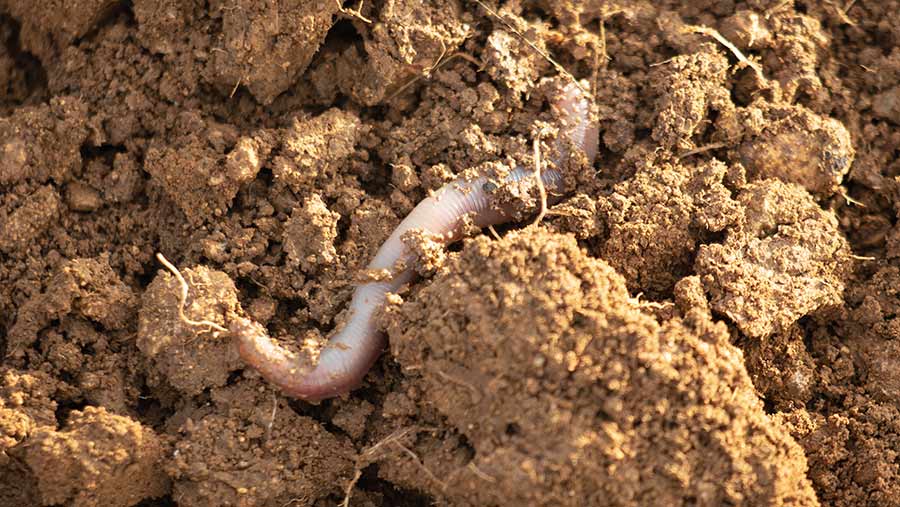New regulations needed to improve agricultural soils – Efra
 © Tim Scrivener
© Tim Scrivener Soil needs to be put on the same footing as air and water when it comes to government policy, with new statutory targets to ensure that soil health is improved and food security supported.
That is one of the key recommendations of a new report from the cross-party Environment, Food and Rural Affairs (Efra) committee, which wants to see a new regulatory framework in place by 2030.
See also: The Soil Health Scorecard – what it is and how to use it
“Government must work with industry and academia to develop a set of binding and measurable targets for improving soil health in England… giving a clear, but realistic indication of how the use of agricultural inputs will be reduced over time,” it says.
The report also calls for an action plan by 2025, to make sure more organic inputs are used in farming, including compost, digestate and biosolids.
Better data
Prior to this, however, the committee says immediate action is needed to improve the data on soil health and management “so that all stakeholders can start working towards common goals”.
This can be achieved by funding the “widespread and standardised” testing of soil through the Environmental Land Management (ELM) scheme.
Efra committee chairman Sir Robert Goodwill said: “Sustaining and restoring the country’s soil is essential for our ability to grow food and protect this vital habitat.
“For too long soil has been treated differently to water and air. It is about time that soil health is considered on an equal footing with these other critical assets.”
The government’s ELM scheme needed to be more ambitious, Sir Robert added, with an aim to get over 90% of farmers involved by 2040.
This would require Defra paying “attractive rates” for a wide range of soil-improving measures, and making ELM more widely accessible.
World Soil Day
Launched to coincide with World Soil Day (Tuesday, 5 December), the report says that soil in the UK has become heavily degraded in recent years through over-use, erosion, compaction and pollution.
As well as setting new legal targets for soil health, the report also calls for a greater contribution from retailers to ensure that sustainable farming, based on more organic inputs, is profitable.
Soil Association head of farming policy, Gareth Morgan, said the Efra committee was right to warn about the declining health of UK soil, but said the recommendations lacked urgency.
“Whilst we agree that the current Sustainable Farming Incentive in England needs to go further to spark transformative change, capable of saving our degrading soils, the timescale they suggest for regulatory action is much too lax,” he said.
“Farmers must be supported to adopt practices that build soil health across their entire farms and action needs to be taken to stop poor soil practice – for example we must stop growing maize where this leads to soil run-off and polluted rivers.”
Government response
A Defra spokesman agreed that healthy and resilient soil was central to delivering for the environment and improving farm profitability.
“Encouraging sustainably managed soils is vital for food security, increased biodiversity, improved water quality and carbon storage,” he said.
“We’re delivering on this through the Sustainable Farming Incentive, which is already paying farmers to protect their soil from erosion and increase soil organic matter, including through the use of herbal leys and cover crops.”
